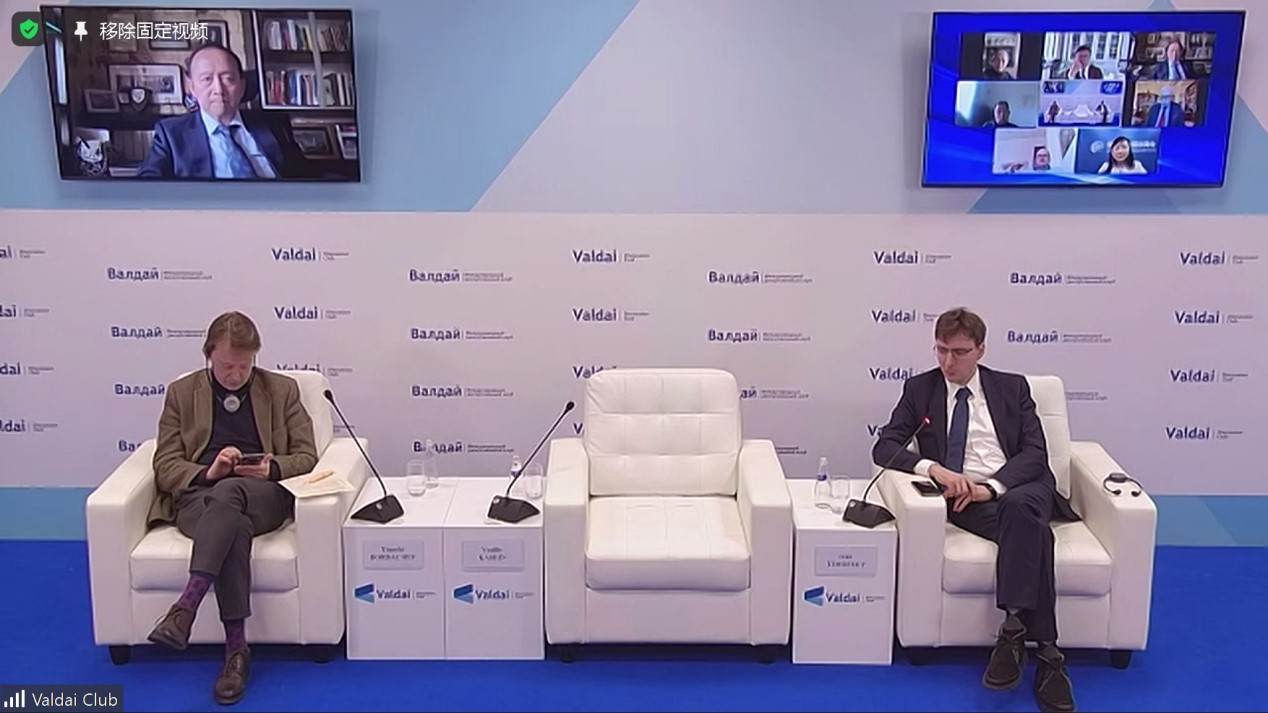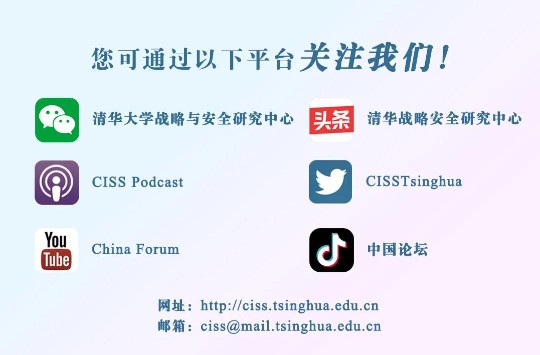On March 16, the Valdai Discussion Club hosted an expert seminar entitled “Approaches of China and Russia to the Emerging Multipolarity,” which was held both online and offline. Bringing together a dozen Chinese and Russian experts, the seminar focused on Russia-West relations, the value of China’s Global Security Initiative, global economic transformation, security challenges in East Asia, Europe-Asia cooperation and the emerging multipolarity, among other topics.

On the Chinese panel were Da Wei, director of the Center for International Security and Strategy (CISS) of Tsinghua University and vice chair of China Forum; Zhou Bo, CISS senior fellow and China Forum expert; Zhao Minghao, professor at the Institute of International Studies of Fudan University and China Forum expert.
Professor Da Wei elaborated on the understanding of the concept of multipolarity and the strategic commonalities as well as divergences between China and Russia. He believes that the concept of “pole” is more appropriate for describing power contrast between countries or regions, but it cannot accurately understand the networked nature of today’s world, which is its limitation. Countries can be regarded as nodes in the global network, and their degree of connectivity with other nodes is an important indicator of their comprehensive national strength. According to Professor Da, China and Russia have faced common pressures from the West in the past decades in areas such as geopolitics, ideology and division of labor, which created the strategic commonalities between the two countries; however, China’s attitude toward globalization and its perspective on the international order differ to some extent from that of Russia. Professor Da stressed that China and Russia, as strategic partners of coordination, should communicate frankly about the convergences and divergences in their views.

In his speech, Senior Colonel Zhou Bo (ret.) said that amid the evolving great power relations, friendship between China and Russia is highly important and in line with the common interests of both sides, and its significance and influence go far beyond the two countries—it is conducive to the stability and security of the world. Zhou Bo believes that China and Russia share many common interests, but have different views on the international order. In the context of the Russia-Ukraine conflict, China also attaches importance to its relations with Europe, and needs to consider the interests of all sides. He also shared his insights on the future development of the Russia-Ukraine conflict and the role China can play.
Professor Zhao Minghao said in his speech that after the Ukraine crisis, the US has focused more on integrating its strategic layout in the Indo-Pacific and Europe, promoting “club-style globalization,” reshaping international governance mechanisms and strengthening its Indo-Pacific strategy, which has created fresh challenges and pressures for China. The chain reaction of the Russia-Ukraine conflict has also made it more difficult for global powers to cooperate in addressing climate change, energy security, nuclear non-proliferation and other challenges, as the trends of fragmentation and bloc confrontation are on the rise. Major powers need to work together to promote the de-escalation of the Ukraine crisis and safeguard the fundamental stability of the international order.
Also among the Chinese panelists were: Zhou Li, former deputy head of the International Department of the CPC Central Committee; Feng Shaolei, tenured professor at East China Normal University (ECNU), director of the ECNU Center for Russian Studies and director of the ECNU Center for Co- development with Neighboring Countries; and Fu Yanjie, secretary general of the Union of Chinese Entrepreneurs in Russia. The Russian panelists included Alexander Lukin, scientific head of the Institute of Chinese and Contemporary Asia, Russian Academy of Sciences; Vasiliy Kashin, director of the Center for Comprehensive European and International Studies, National Research University Higher School of Economics; Dmitriy Trenin, professor at the National Research University Higher School of Economics; Ivan Timofeev, director general of the Russian International Affairs Council. The seminar was co-moderated by Fyodor Lukyanov, research director of the Valdai Discussion Club Foundation for Development and Support, and Timofei Bordachev, program director of the Valdai Discussion Club.

